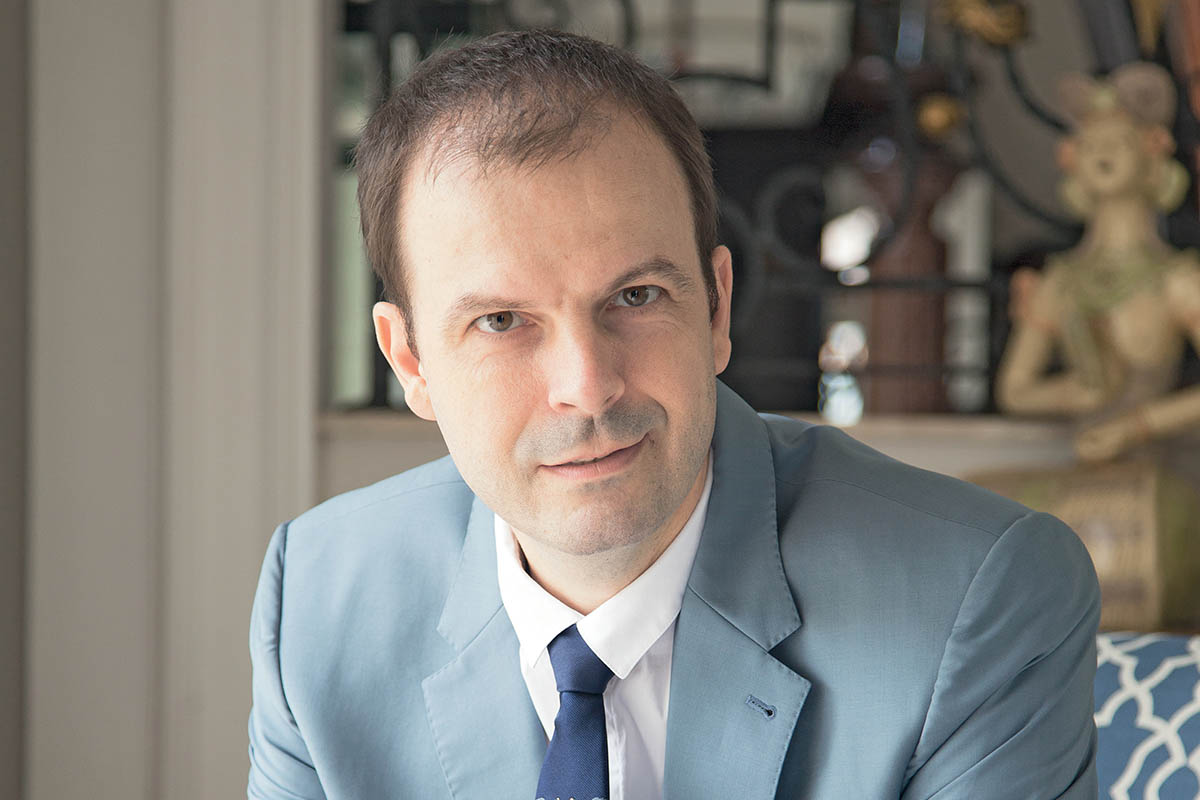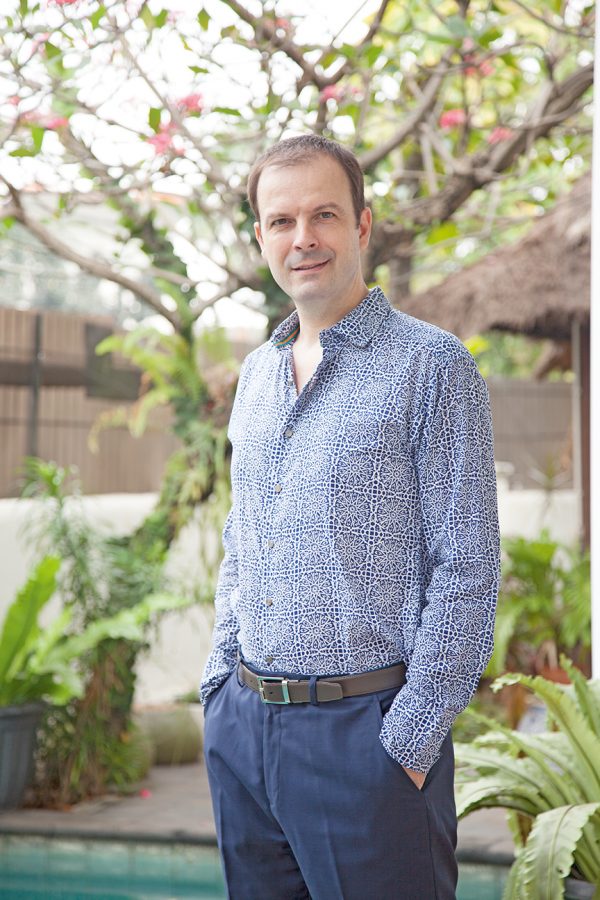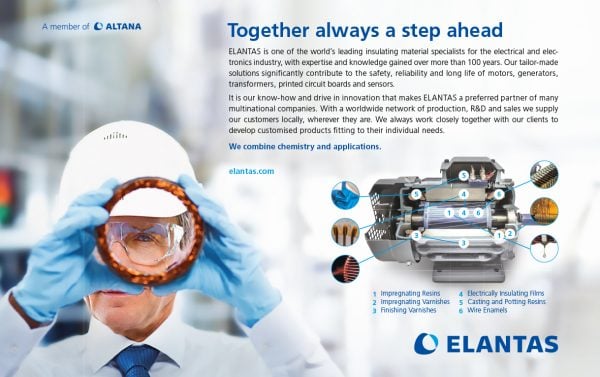Since October 2018, David Sonzogni, the President of Electric Power Generation Europe and Asia-Pacific at Nidec Leroy-Somer, has been overseeing the power generation division in Europe, the Middle East and Africa, India, and Asia-Pacific.

The French native is in charge of the product portfolio across the regions, as well as the company’s six production sites, and its global sales and services network. The task at hand is challenging. But fortunately, David is where he wants to be, explaining that this is what he has dreamed about since he was 20 years of age.
“I like to travel and meet people,” David reflects. “Being a manager is the best job in the world for me. I’ve always wanted to lead people. That’s what motivates me to do 12-, 14- and 16-hour days.”
Leroy-Somer, a French-based electromechanical and electronic drive systems manufacturer, is proud of its ability to produce efficient product designs and manufacturing tools that grasp and retain the majority of the market. Its specialties include electric alternators and associated controllers, used in industries such as building utilities, data centres, power plants, marine, and oil and gas.
In 1990, US engineering firm Emerson acquired the company and, in 2017 it was sold to Japanese electric motor company Nidec Corporation. “We are the leader in alternator manufacturing,” David confirms. “We own close to 23% market share globally.”
The performance of the Electric Power Generation division, which develops power solutions and generators for Leroy-Somer and Kato Engineering has been consistently strong across Europe. “We have done exceptionally well for ourselves in Europe, where we have close to 30% market share,” he continues.

Moving the company towards a more sustainable route is one of David’s ambitions. “There has been zero technology revolution in the alternator business in the past 60 years,” he says.
“We have coal-fired power plants and diesel power plants. Gas is supposedly cleaner. But is it?” David explains that Leroy-Somer is working to reduce the pollution created by diesel engines. He says that, until now, there has been minimal action in creating greener alternators.
“We should, as alternator makers, start talking to the regulatory authorities to build the momentum towards developing products using greener technologies,” he notes.
“We work in the field of hydroelectric power generation. We want to participate in the transition of our business with the improvement of batteries as well as other technologies to reduce the carbon footprint of our industry.”
David doesn’t ignore the fact that many businesses are talking about sustainability, yet for most, it’s too soon to tell whether the conversation has resulted in change. “Every company wants to be green,” he says.
Being a manager is the best job in the world for me. I’ve always wanted to lead people. That’s what motivates me to do 12-, 14- and 16-hour days.
“But we are really at the forefront of making change happen. It’s our responsibility to jump in the race and try to make better systems with our customers. Cleaner alternatives are a big focus. In the next two to three years, I want to create the product for the future. Now is the time to start thinking differently so that we can be sustainable for the next 20 years.”
In light of COVID-19, David sees the company as being relatively fortunate because, with the factory in China, the business was able to learn from what was happening there before the virus spread globally.
“The Chinese government has been exceptionally supportive of teaching each industry how to restart,” David explains. “This support has helped us keep a cool head and raise security measures ahead of the exponential increase that happened mid-March in Europe.”
The company’s factories in France didn’t close and the business managed to do well in Eastern Europe. “Anticipating what could eventually happen because of the experience we had in China allowed us to maintain excellent profitability in our second quarter,” David says.
He also confirms that all 2,200 of the business’s employees throughout the world are safe: “We are trying to keep work as comfortable as possible and ensure people are safe and social distancing.”
David highlights that it’s about remaining positive in times of crisis, because “the crisis by definition is temporary as we know there will be an end to it”. It’s also about ensuring employees remain positive.
“If people see it as the end of the world, the end of the company, or the end of their job, you won’t achieve anything positive.” He acknowledges that while he is safe at home with his family, the real heroes are the plant managers, as well as the people who keep the plants running, the cleaning services and the workers that continued throughout the lockdown in Europe.
“Everyone has been remarkable,” he adds. David is also taking the opportunity to accelerate several of Leroy-Somer’s medium-term projects. “I’m talking about automation, productivity improvement, lead projects in the factories, capital expenditures and new equipment to take advantage of this slower period to make leaps forward,” he says.
“When the business returns, we’ll be in a better position to react.” The other area of focus over the next few months is cutting costs and protecting cash. “Many companies will go bankrupt,” David says.
“If you don’t protect your cash aggressively, you’ll run into trouble.” Reflecting on his professional journey so far, David shares an anecdote about one of his first managers, who taught him the value of mistakes.
“Making mistakes should not stop you from taking a risk,” he says. “That has been my motto throughout my career. If you are not adventurous, if you don’t take risks, then you are not going anywhere.” The company is striving to be the greatest, with a bright future that involves the right products at the right cost with the right market strategy.
“I hope I can achieve that,” David says. “It will be a big challenge. We still don’t know how to get it done, but that’s where we are heading now.”
Proudly supported by:



